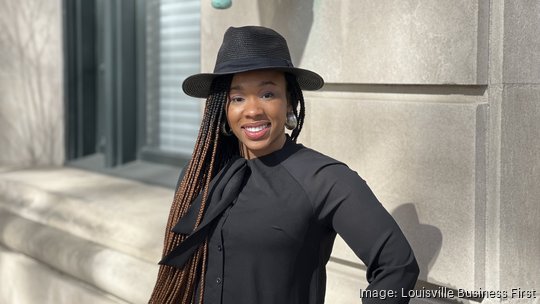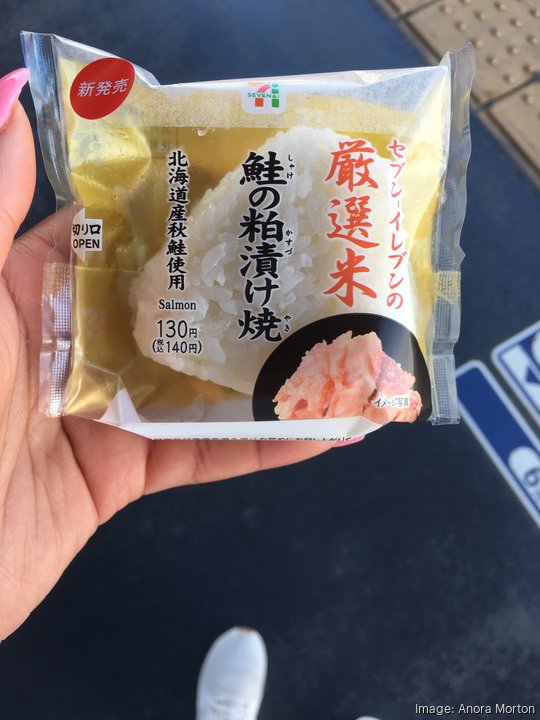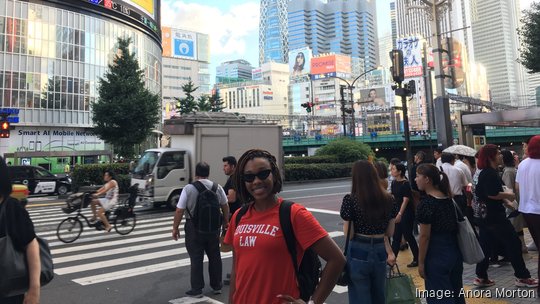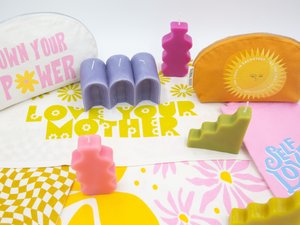
She didn’t know it at the time, but in a town west of Tokyo, Anora Morton was at the intersection of career aspirations — one that happened to be equipped with a peculiar type of vending machine.
“When you get immersed in something, that's so foreign, it seems like forever. That’s what it felt like to me and that's why it was so hard for me to leave,” said Morton of her time in Japan in August 2019.
At the time, Morton was one of two students from the University of Louisville’s Louis D. Brandeis School of Law who was attending a one-week course on the introduction to Japanese law. She was doing so at Chuo University as a recipient of a Robert Brown Global Scholarship that pays for the study-abroad experience.
In what turned out to be a happy accident, Morton mistakenly booked an Airbnb location that was two hours (by subway) from the campus she was to attend in Tokyo — Chuo has another campus in Hachioji.
“It ended up being the mistake ever because I ended up being near Mount Fuji to the point where I'd wake up in the morning, look out the window and see [it],” Norton said.
And on her way from her residence to the subway station, she would pass several vending machines that would sell not snacks or junk food, but hot — or cold — fresh, healthy foods. In fact, on her first day of class, she was late because she was so enamored by one of the contraptions.
“I was just gawking at this machine,” she said. “I was like, ‘Why don't we have these in the States? This could solve so many issues.’”
One of her favorite items was onigri, which is rice ball with salmon or other foods wrapped in a seaweed by the name of nori, which would serve as inspiration for the name of Morton’s startup, The Nori Project.
“A lot of people think it’s a play on my name,” she said. “It’s not.”

Changing her focus
At the time of her Japan trip, Morton was dead-set on being a criminal defense attorney, a dream that had been with her since growing up in Versailles, Kentucky. The first generation-college student first earned an undergraduate from the UofL in 2017 in criminal justice, and an associate’s degree in paralegal studies before enrolling in law school in 2018 after a gap year.
“It was just something that I was fixated on, and I had to see it through,” she said.
Thanks to the diploma privilege in Kentucky — in which graduates can secure a license to practice law without taking the bar exam — Morton was allowed to get a job as a public defender at the Department of Public Advocacy in Shelbyville, Kentucky, for eight months while studying for the bar exam, beginning in August 2021. She would end up taking it twice, missing the cut by a few points both times.
“At that point, though, when I went to retake it the second time, I didn't have that fire anymore,” Morton said. “I had lost it while practicing.”
Chalk it up to another accident. In the summer of 2022, her law career came to a close — and those vending machines in Japan came back into focus.
While working on her law degree, Morton interned as a law clerk at the Office of the Commonwealth's Attorney and was living in West Louisville when the coronavirus pandemic hit in 2020, giving her insight into the food desert situation of the area, as well as other issues.
“Nobody would deliver groceries to me,” Morton said. “I felt like I was being personally attacked by racism because I was like, no matter how many glass ceilings I can shatter — being a first-gen college student, being a Black woman trying to make it and get a law degree — I'm still feeling like that poor Black kid who can’t get fresh food.”

‘Everybody deserves fresh food’
In the fall of 2022 within the span of about two weeks, Morton first met Natalia Bishop, director of innovation and entrepreneurship at the UoL, among other titles. Before long, Bishop was scribbling on a whiteboard. The next day, her startup had a name. A few weeks later, it had a site after Bishop told her to attend the Louisville Food Justice Summit in West Louisville.
Now, Morton is looking to land a pre-seed round of $150,000 — and find a strategic partner — to bring the Japanese-style vending machines to market this summer.
The initial wave will consist of 20 machines, located not just in West Louisville, but throughout the city. Each machine, which will carry either hot, refrigerated or frozen food, will cost around $10,000. Morton has already been in contact with undisclosed China-based company that manufactures the machines and has shipped versions of them to the U.S., mainly to airports.
“I want the machines to go in the west, the east, everywhere in between, because everybody’s gonna love these,” Morton said of their positioning inside Louisville. "Everybody deserves fresh food.”
Morton is currently working on establishing partnerships for those who will supply “culturally relevant, healthy food” to the machines — including local Black and Brown farmers — but did mention a deal has been reached with Chef Prep Meals. The offerings will also include smoothies made with fresh fruits and cold-pressed juices.
The price of the food has yet to be determined, but all of the machines will be able to accept SNAP/EBT benefits. There will also be a payment app in the works.
In the meantime, The Nori Project was recently announced to the most recent cohort of the Wild Accelerator, which is chaired by Bishop. Morton also received various resources through the Health Equity Innovation Hub, a partnership between the UofL, The Humana Foundation and Humana Inc.
According to data taken from a report done in 2020 by Shauntrice Martin — a native of West Louisville — there is one store for every 12,500 residents in East Louisville. In West Louisville, that statistic climbs to one store for every 25,000 residents.
“So you're competing with that many more people for fresh food," said Morton, who added that she wants to give back to younger generations.
Why?
"To make sure they have the food that they eat healthy food that they need because when you’re food insecure and you’re trying to trying to figure out where your next meal is coming from, you can't think about college,” she said. “You can’t think about a career.”









